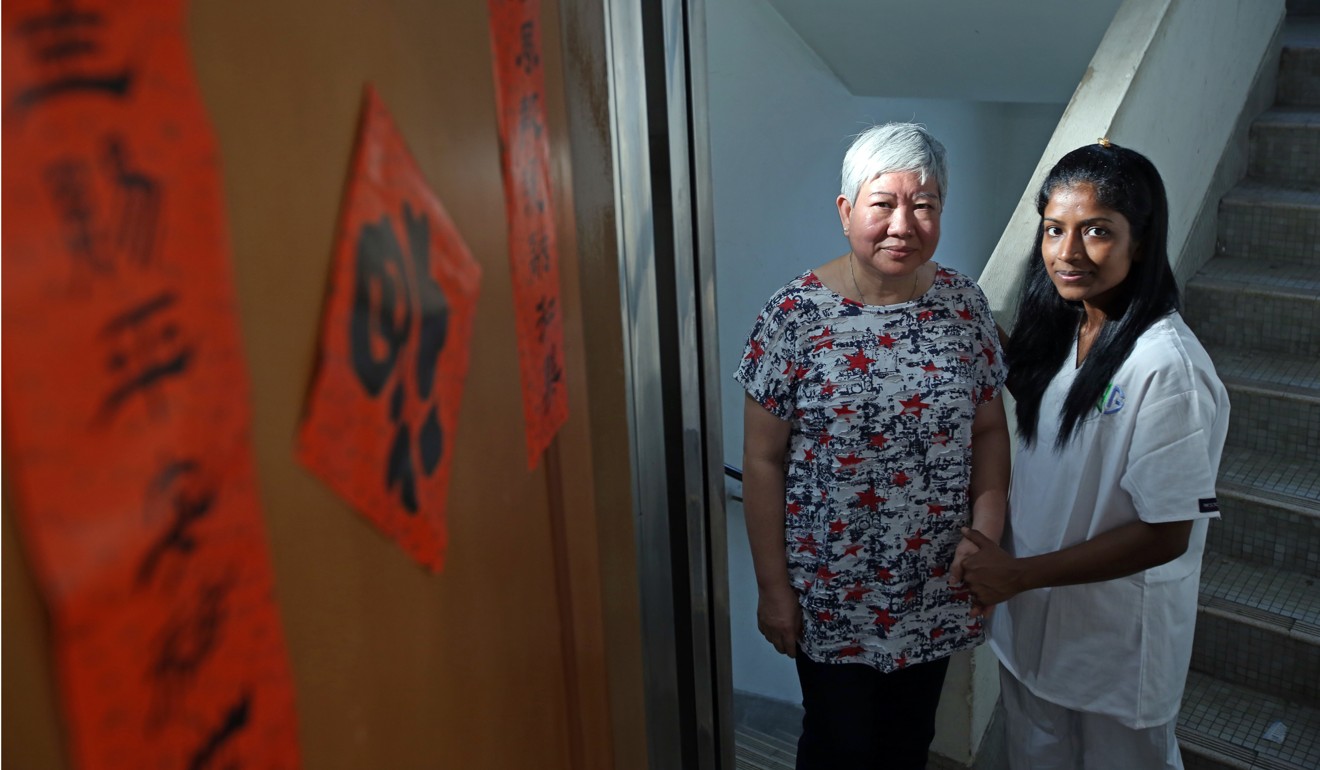
I was wrong: Hong Kong does need domestic helpers for elderly care
Peter Kammerer’s own experience of caring for his frail mother has changed his mind on what Hong Kong’s ageing population needs. Having more domestic workers will give struggling families an option that should not be dismissed out of hand
Those who write columns have to eat their words from time to time. The piece of humble pie I have before me is impressive. I now acknowledge that my earlier belief, that it is wrong for a family to employ a domestic helper to take care of a frail parent, is flawed. How I wish that I had such an option at hand with providing for my elderly mother in Australia.
The sight of a small Indonesian woman struggling with a wheelchair-bound old man in a Kai Tak public estate had convinced me I was right. A trip to visit former neighbours living at Tanner Hill, a well-managed and services-packed retirement home in North Point operated by the Hong Kong Housing Society, told me our city is readily able to cater for the needs of the elderly.
Experience with my 87-year-old mother, who, despite failing health, stubbornly refused to leave her home of 60 years, gave me insight into what was needed. To contend that the solution to an ageing population is a foreign maid with little or no understanding of the needs of the elderly seemed irresponsible.
But then my mother’s health deteriorated. She was no longer able to cook for herself and taking a shower became unsafe. Her diabetes was more difficult to treat and, with that, came regular bouts of confusion, a loss of appetite and incontinence. Home care services that had consisted of a carer every now and then to help with cleaning and shopping had to be stepped up and twice-daily visits by nurses to give medication added.
Australia has strict labour laws that include a minimum wage of A$18.29 (US$14) an hour, a working week of 37 hours and out-of-hours, weekend and public holiday bonuses. The cost of my mother’s care soared, but no adequate help could be provided between 6pm and 8am, leaving her in unsafe conditions. One late-night ambulance trip too many prompted me to explore the idea of full-time, live-in care, as happens in Hong Kong with families that hire domestic helpers. But only the wealthy can afford such a luxury in Australia; the minimum monthly wage here for a maid is HK$4,410 (US$562), while there, the cost for around-the-clock care before government subsidies, as advertised by one Sydney provider, would be just under 24 times that, at HK$105,220.

If my mother had been less attached to her home and in a fitter state to travel, bringing her to Hong Kong and hiring a domestic helper would have been a viable option. Unlike in Australia, there are no requirements that only nurses can give insulin injections. She could have had three meals cooked for her each day and encouragement to eat, her personal hygiene taken care of, regular exercise and medical specialists close at hand. Instead, without the financial means to continue to care for her at home, she has to prematurely leave her familiar surroundings and spend her last days in an as-yet undetermined nursing home.
International research shows that in-home elderly care, when done well, prevents hospitalisation and delays placement to a nursing home. That means lower government costs. We still need many more health care professionals for the elderly. But Dr Law is right – domestic helpers, given the proper training, will be much needed as society ages.
Peter Kammerer is a senior writer at the Post

